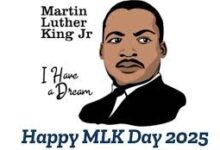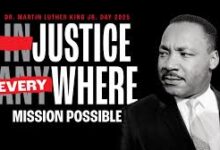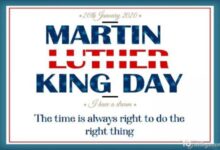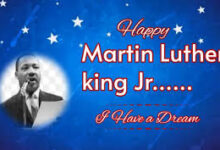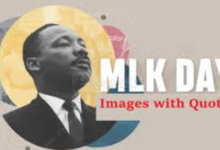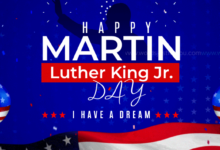Martin Luther King Jr Day 2025 JPG
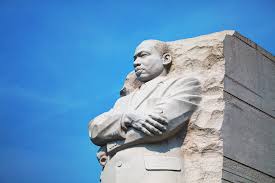
Every year, on the third Monday of January, the United States pauses to celebrate Martin Luther King Jr. Day—a time to honor the life and legacy of Dr. King, a visionary leader who transformed the Civil Rights Movement. For 2025, this day doesn’t just mark a historical remembrance; it’s an opportunity to reflect on the progress we’ve made and the steps we still have to take to achieve Dr. King’s dream of equality and justice for all.
Martin Luther King Jr. Day has become more than just a federal holiday. It serves as a national call to action to advance social justice, foster solidarity, and engage in community service. This blog explores the origins of the holiday, its significance in modern times, and actionable ways to honor the spirit of Dr. King in 2025.
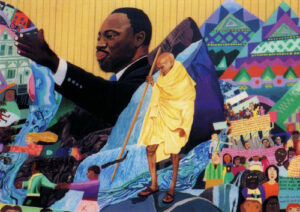
Who Was Martin Luther King Jr.?
Dr. Martin Luther King Jr. was a civil rights leader, activist, and pastor whose work reshaped the course of American history. Best known for his commitment to nonviolent protest, Dr. King led groundbreaking movements to dismantle segregation, secure voting rights for African Americans, and address systemic inequality.
Some key moments in Dr. King’s life include:
- Montgomery Bus Boycott (1955–1956): Following the arrest of Rosa Parks, Dr. King led a year-long boycott of Montgomery’s bus system to protest racial segregation. This pivotal campaign brought national attention to the civil rights struggle.
- “I Have a Dream” Speech (1963): During the historic March on Washington for Jobs and Freedom, Dr. King delivered his iconic address at the Lincoln Memorial. His words calling for a nation where people are judged “not by the color of their skin but by the content of their character” remain deeply impactful.
- Nobel Peace Prize (1964): At just 35 years old, Dr. King became the youngest recipient of the Nobel Peace Prize, recognized for his efforts to combat racial inequality through nonviolence.
- Selma to Montgomery Marches (1965): These marches, which culminated in the Voting Rights Act of 1965, highlighted the barriers Black Americans faced at the polls and the urgency of comprehensive change.
Dr. King’s assassination in 1968 shocked the nation, but his dream for equality continues to inspire people across generations and continents.
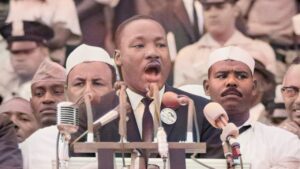
The Origin of Martin Luther King Jr. Day
The campaign to establish Martin Luther King Jr. Day began soon after his death. Congressman John Conyers and Senator Edward Brooke introduced a bill advocating for a nationwide holiday in his honor. However, it wasn’t until 1983 that President Ronald Reagan signed the holiday into law, following widespread advocacy from civil rights leaders, petitions with millions of signatures, and continued pressure from activists.
The first official Martin Luther King Jr. Day was observed on January 20, 1986. Since then, communities across the U.S. have embraced the holiday as not just a day of remembrance but as a day of service.
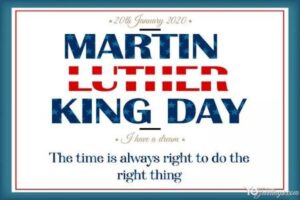
Why Martin Luther King Jr. Day Still Matters Today
The ideals Dr. King stood for—justice, equality, and unity—remain as relevant as they were during the Civil Rights Movement. While there has been undeniable progress since the 1960s, challenges like systemic racism, economic inequality, voter suppression, and social division persist.
Martin Luther King Jr. Day serves as an annual reminder that:
- The work isn’t done. Dr. King once stated, “The arc of the moral universe is long, but it bends toward justice.” This day reminds us that justice and equality require continued effort and advocacy.
- Nonviolence remains powerful. Dr. King’s strategy of nonviolent resistance offers a timeless blueprint for creating meaningful change without resorting to divisiveness or hatred.
- Service unites communities. The King Day of Service encourages people to volunteer in their communities, fostering connection and making a tangible difference.
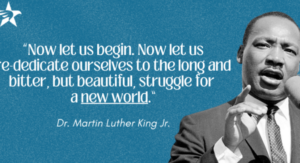
How to Celebrate Martin Luther King Jr. Day in 2025
Whether as an individual or as part of a larger community, there are many meaningful ways to honor Dr. King’s legacy. Here are some ideas for engaging with the holiday in 2025:
1. Attend or Host Events
Many cities organize parades, marches, and remembrance ceremonies to honor Dr. King. Check your local community calendar for in-person or virtual events. You might also consider organizing a discussion or film screening to educate others about Dr. King’s life and impact.
Tip: Powerful films like Selma or documentaries such as King in the Wilderness offer valuable context for what Dr. King faced and achieved.
2. Volunteer as Part of the MLK Day of Service
Designated as a National Day of Service, Martin Luther King Jr. Day is the perfect opportunity to give back to your community. Volunteer opportunities might include:
- Cleaning up a park.
- Mentoring youth.
- Serving meals at a shelter.
- Participating in voter registration drives.
Websites like AmeriCorps provide searchable MLK Day service projects near you to get involved easily.
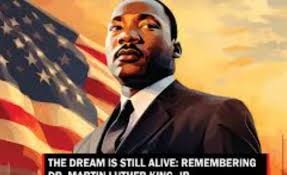
3. Explore Dr. King’s Speeches and Writings
Few people in history have used words as powerfully as Dr. King. Take time to read or listen to his speeches and writings, such as:
- “Letter from Birmingham Jail”
- “I Have a Dream”
- “Beyond Vietnam”
Reflecting on his words is an excellent way to connect with his vision of justice and compassion.
4. Support Black-Owned Businesses and Organizations
One way to show respect for Dr. King’s legacy is by supporting Black-owned businesses and donating to organizations that advance civil rights and economic equity.
5. Educate the Next Generation
If you have children, nieces, nephews, or students, help them understand who Dr. King was and why his work matters. Share books like Martin’s Big Words by Doreen Rappaport or I Am Martin Luther King, Jr. by Brad Meltzer, which are suitable for younger audiences.
6. Reflect on Dr. King’s Legacy
Take a moment to reflect on how you, as an individual, can create positive change. Dr. King once said, “Life’s most persistent and urgent question is, ‘What are you doing for others?’” Use the day to consider how you can contribute to equality, justice, and kindness.
